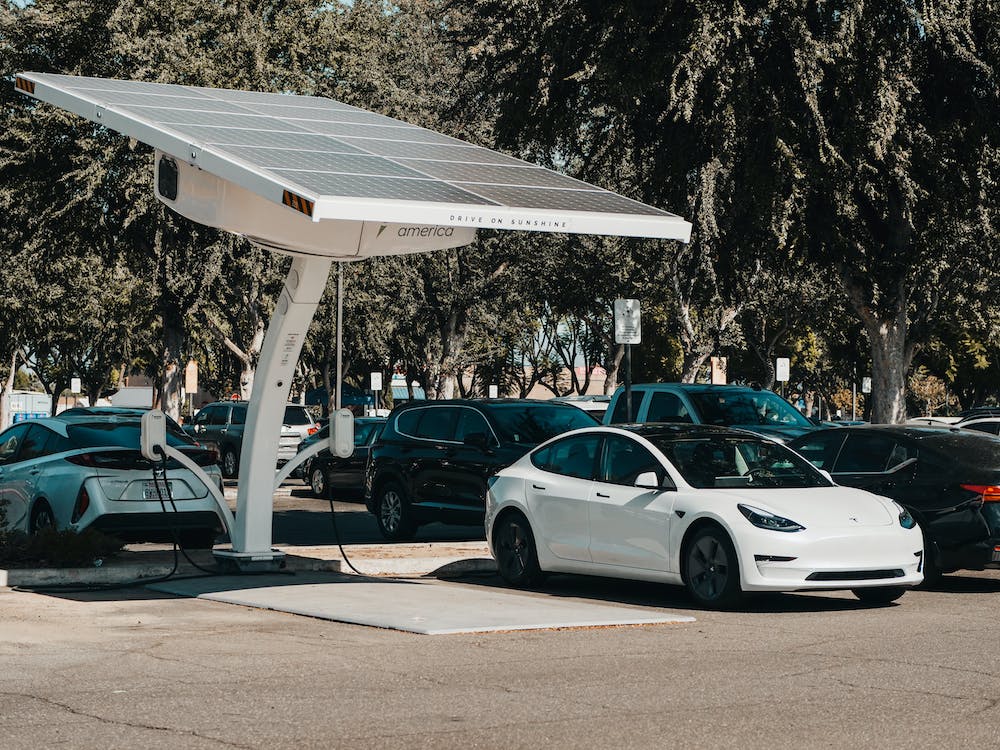If you’re reading this article hoping for a simple yes or no answer, we’re afraid we have some bad news. While many like to think of electric cars as the silver bullet to combatting CO2 emissions around the world, there’s still plenty of issues to overcome. We take a look at some of the considerations and key figures relating to electric vehicles and whether or not they truly are better for the environment.
If you’re reading this article hoping for a simple yes or no answer, we’re afraid we have some bad news. While many like to think of electric cars as the silver bullet to combatting CO2 emissions around the world, there’s still plenty of issues to overcome. We take a look at some of the considerations and key figures relating to electric vehicles and whether or not they truly are better for the environment.
At a very basic level, switching to electric is the sensible choice – and according to records one in five new vehicles sold in the UK is electric. More and more manufacturers are producing more models all the time, and the technology and level of performance are improving rapidly. But there continues to be a level of wariness among plenty of drivers, due in no small part to a number of myths that continue to circulate about such models.
Wall-to-wheel carbon emissions
Arguably the biggest myth that many like to use in an argument is that, taking into consideration the well-to-wheel emissions – i.e. those emitted throughout the entire production and manufacturing process, as well as those associated with the generation of electricity – the overall benefit of going electric is minimal. While there is some logic to such an argument, the figures tell a different story.
According to a 2017 Government study, petrol vehicles produce the highest well-to-wheel emissions at 211g/km, with diesels accountable for 179g/km. Compare these figures to the 73g/km associated with electric vehicles and the differences are clear. What’s more, the UK electricity infrastructure is gradually moving towards renewable energy, which itself will further reduce this figure, meaning electric vehicles will be even less reliant on carbon.
There is still a long, long way to go before electric cars are running solely on renewable energy, but the fact that there is potential for such models to truly be 100% green – something petrol and diesel models can never be – is an argument few can contend with.
This is why some choose to convert their classic car to an electric car.
Lack of recyclable materials
Another common misconception about the damage caused by electric vehicles pertains to the assumption that electric vehicle batteries are unable to be recycled, and instead reach their expiration and are tossed into landfill. In reality, electric vehicle batteries can be taken to specialist processing centres that extract approximately 98% of materials that can either be reused or recycled.
A particular example of the repurposing of battery components can be seen around domestic properties. An electric vehicle battery can be used to store electricity generated by solar panels, thereby helping reduce your domestic electricity costs. Those batteries not being used for energy storage, meanwhile, are transported to EU processing and recycling centres.
Raw material availability
While we’ve already touched on the well-to-wheel CO2 emissions based around production, many people are wary that the demand for lithium-ion batteries in electric vehicles is far outweighing the availability of sourcing raw materials – namely lithium, copper, aluminium and iron. News reports regularly appear citing a shortage of supply, but less commonly promoted are the alternative technologies that are being looked into.
As one of the most pioneering manufacturers of electric vehicles is always seeking new solutions, with lithium iron phosphate batteries among them. These provide lower energy density and offer a longer lifespan in comparison to lithium-ion options. Similarly, Chinese manufacturer GAC has equipped its Aion V SUV with a graphene battery, which provides faster recharging, improved safety and greater resistance to wear.
These are just a couple of the solutions in development that could lessen reliance on those raw materials currently mined, with plenty more research and development on-going and certain to hit a wider market in the coming years.
Electricity tariffs
One final concern many have about electric cars is the impact on the national electrical grid, plus the costs of charging. We’ve all seen the costs of residential bills leap substantially due to myriad domestic and international issues, and the expectation is that as more and more people switch to all-electric motoring, the network simply will not be able to cope. In reality, it’s estimated that should the entire UK population switch to electric vehicles overnight, the national grid would experience just a 10% increase in demand – well within capacity.
Energy pricing caps, meanwhile, are reviewed every six months to ensure affordability for households, while the government has increased the Advisory Electric Rate to 5p per mile in order to cover the increase in energy costs. So, while the cost of charging will increase, it’s hoped that these actions will help maintain the affordability of choosing to drive electric models.
So, yes or no?
We began this article by suggesting that all-electric vehicles are not quite the silver bullet many are hoping for in reducing CO2 emissions. That said, the few myths we’ve addressed demonstrate that steps are being taken in the right direction. The next few years will undoubtedly be the true test of whether or not electric motoring is the perfect solution, with refinement to the technology and wider adoption of renewable energy crucial to success.
You can learn more about the range of electric vehicles currently on offer from the EV Specialists at Birchwood Group. They are already playing a part in helping motorists make the change to electric driving. Birchwood provide one of the best new and used electric vehicles selections in the UK. Are you ready to see the benefits of moving away from petrol/diesel power?

